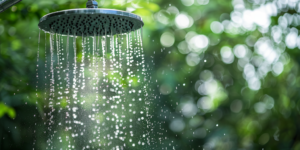Congratulations on your new pet porcupine. Porcupines are unique and interesting animals that can make great companions. However, you should know a few things to ensure that both you and your pet porcupine are happy and healthy.
1. Proper Feeding
When it comes to food, porcupines are omnivores. This means that they will eat both plants and animals. It is essential to give your porcupine a diet that is rich in nutrients and variety. You can feed them commercial pet food, fruits, vegetables, and even meat. Feeding times will vary depending on the age of your porcupine. You should feed baby porcupines three to four times a day, while you can feed adults once a day. It is essential always to have fresh water available for your porcupine to drink.
2. Housing
When it comes to housing, porcupines need a large enclosure. They are very active animals and need plenty of space to move around. The enclosure should be made of sturdy materials such as metal or wire. It should also have a solid floor that is easy to clean. Porcupines are also escaping artists, so the enclosure must be secure. Inside the enclosure, you should provide your porcupine with plenty of places to hide and climb. This can be accomplished by adding branches, rocks, and logs. You should also provide your porcupine with a nest box for sleeping and resting.
3. Interaction and Socialization
Porcupines are social animals and do best when they live in pairs or groups. If you are only planning on keeping one porcupine, be sure to provide them with plenty of human interaction. It is essential to spend time with your porcupine every day. You can do this by playing with them, petting them, and training them. You can also provide exercise by taking your porcupine for walks on a leash. You should give your porcupine at least 30 minutes of exercise per day.
4. Sleeping Schedule
Porcupines are nocturnal animals, meaning they sleep during the day and are active at night. It is essential to respect their natural sleep cycle and not disturb them during the daytime hours. It is essential to provide them with a dark, quiet place to sleep during the day. At night, you can let them out to play and explore.
5. Grooming
Porcupines are relatively low-maintenance when it comes to grooming. Porcupines are very clean animals and groom themselves regularly. However, they will still need occasional baths to remove any dirt or debris from their fur. Be sure to use a mild soap and avoid getting water in their eyes or ears. Porcupines also need to be brushed because their quills can become matted and tangled. It would be best to brush your porcupine at least once a week with a soft-bristled brush. It would help if you also trimmed their nails regularly.
6. Health Checkups
It is essential to take your porcupine for regular health checkups. Porcupines are susceptible to various health problems, so it is vital to catch any issues early. Your vet will be able to provide you with a complete list of vaccinations and tests that your porcupine will need. Some common health problems include tooth problems, respiratory infections, and parasites.
As you can see, there are a few things you need to consider before bringing home a pet porcupine. While they may be relatively low-maintenance animals, they still require some primary care to stay healthy and happy. By providing your porcupine with a spacious enclosure, plenty of enrichment opportunities, and a diet rich in plant-based proteins, you can help ensure that your pet enjoys a long and happy life. With a little bit of planning and preparation, owning a pet porcupine can be an enriching experience.



